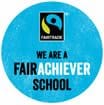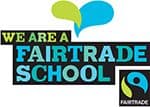Instrumental Programme
Course Overview
INSTRUMENTAL PROGRAMME
The music department at St Thomas of Aquin’s R.C. High School is committed to ensuring and delivering the best possible learning experience for a child who has been selected to receive free tuition on an instrument within school. The City of Edinburgh Council is one of the few authorities in Scotland which does not charge for instrumental lessons within school. We really value this service and would like as many students as possible (space permitting) to avail of this fantastic opportunity.
During the first few weeks of S1, all pupils are given information during class time regarding the instruction programme in the school. Prior to that, the school orchestra often does a special performance during the 3-day primary visit in June to introduce some of the instruments taught at the school. A letter is issued to all S1 pupils in August/September to give to their parents informing them of the programme and inviting them to participate. This involves requesting a ‘try-out’ on two instruments, a first choice and a second choice instruments.
Staff
Mr J. Anderson – Teacher of Piano/Keyboard
Ms S. Bell – Teacher of Voice
Mr R. Linfoot – Teacher of Guitar
Ms A. Aydin – Teacher of Upper Strings
Ms A. Picken – Teacher of Cello and Double Bass
Ms S. Hallas – Teacher of Woodwind
Ms F. Lund– Teacher of Brass
Mr S. Callaghan – Teacher of Percussion
Ms C. Petersen – Teacher of Clarsach
Instruments offered for tuition vary from year to year depending on the availability of space on the timetable. There are usually spaces offered for S1 pupils on woodwind (flute, clarinet, oboe), brass (trumpet, trombone, tuba, euphonium, horn), double bass, cello, orchestral percussion, and guitar.
Why learn an instrument?
- Music teaches you to be disciplined
- Music teaches you to work with others
- Music teaches you to become an independent learner
- Music teaches you to deal with disappointment as well as success
- Music helps you to set and accomplish goals
- Music gives you the opportunity to create life-long friendships, to be inspired and to inspire others
- Music gives you the ability to create something beautiful that can have a transformative effect on another’s life
- Music teaches you that it takes hours and hours of practice and hard work to achieve your goals, that success is not a one-time event but rather a lifetime of personal achievement.
- Music helps you to develop valuable attributes that are used across all of your life in whichever career path you pursue.
‘Suitability tests are carried out by the instrumental staff in September and they alone chose who are the successful candidates. If there is excessive demand for an instrument e.g. guitar, not all students will receive a suitability test on their second choice instrument. All pupils will be informed by letter whether or not they were successful.
Spaces are limited and popular instruments such as the guitar are always over-subscribed.
Successful candidates will learn an instrument in one 25 minute lesson which rotates on a weekly basis but on the same day every week: therefore students should never miss the same subject lesson in consecutive weeks.
Both pupils and parents will be made aware of their commitment to receiving instrumental lessons through contact with the appropriate instrumental teacher and a letter issued from the Curricular Leader of Expressive Arts.
Pupils who join the instruction programme in primary school (e.g. violin, viola, cello) automatically get placed on the instrumental timetable in high school. Lessons will be taught in small groups at secondary school, as per the Council policy. Individual lessons are only offered – and if timetable constraints permit – to pupils sitting H or AH Music courses and who therefore must prepare large programmes of work.
Information for parents and students.
Lessons are 25 minutes approx and are provided free of charge. Pupils are extracted from classes on a rotation, and should ensure that they catch up on any classwork which they miss.
When a school instrument is given on loan, the instrument should be kept in good order, treated with care, and brought into school when required for lessons and rehearsals. Pupils are expected to purchase their own tutor and repertoire books. Instruction staff will give out details of cost and where to purchase the books when appropriate.
There is no charge for instrumental lessons but pupils may be asked to purchase an instrument like flute, clarinet, trumpet, trombone or guitar.
In order to develop skills on an instrument, regular practice and attendance at lessons is essential. A progress diary will be provided, and should be used as follows:
- Note down lesson times in advance
- Inform subject teachers 1 week in advance about when you will be missing their class. If you lesson is during the first half of a period, you must register with your teacher before proceeding to your lesson. Failure to do this will result in you being marked absent, and a truancy call will be made to your parents.
- Ask teachers to sign the diary each time you attend a lesson.
- Check targets and ensure that you practice the work noted
- Note down when you practice and ask your parents to sign the appropriate box.
- Inform instruction staff of any reason why you cannot attend your lesson.
- Parents may also use the diary to monitor progress and attendance.
Pupils are expected to practice on their instrument approx. 15-20 minutes, 5 times a week.
If progress is not satisfactory, or if several lessons have been missed without good reason, tuition may be terminated.
When sufficient progress has been made on the instrument, students are expected to attend orchestra / band / ensemble rehearsals and performances. Rehearsals will normally take place out-with school hours and regular attendance is expected. This is an important aspect of the instruction programme, and students who do not participate or have poor attendance may be withdrawn from the programme.
Instruction reports will be enclosed with other year group reports. Parents are encouraged however to contact myself or a member of the instruction team if they would like to discuss progress or any aspect of the instruction programme. Parents play an important role in supporting the instrumental programme. Your help in ensuring that pupils bring in their instruments on the correct day, practice sufficiently and attend their lessons is invaluable.
Clarsachs can be hired from the Clarsach Society, and the clarsach teacher can advise on this.
Pupil Commitment:
Pupils will be issued with a ‘Pupil Progress Diary’ in which they should record their weekly lesson timetable for the term ahead.
- Pupils can then use this diary and information to:
- Inform subject teachers 1 week in advance about when you will be missing their class. If your lesson is during the first half of a period, you must register with your teacher before proceeding to your lesson. Failure to do this will result in you being marked absent, and a truancy call will be made to your parents.
- Ask teachers to sign the diary each time you attend a lesson.
- Check targets and ensure that you practice the work noted
- Note down when you practice and ask your parents to sign the appropriate box.
- Inform instruction staff of any reason why you cannot attend your lesson.
- Parents may also use the diary to monitor progress and attendance.
Pupils are required to attend their weekly lesson, bring the appropriate equipment to their lesson and practise regularly on their instrument. If progress is not satisfactory, or if several lessons have been missed without good reason, tuition may be terminated
Pupils are encouraged to use the music department to practise their instrument at lunchtime and/or after school if they do not have an instrument at home, such as clarsach, drum kit, double bass etc.
Learning an instrument is an exciting opportunity. When a pupil has reached the required standard they will be expected, as part of their instrumental contract and entitlement to free tuition, to perform in the appropriate school band, orchestra or ensemble, and perform in the many concerts and musical events the music department offer. This is a vital part of school life and will greatly enhance playing and confidence.
The Performing Arts Co-ordinator in school is Mrs Marianne Patrick, who is also a music teacher in the Music Department and she is responsible for most of the communications between parents and instrumental staff and co-ordinates some extra-curricular opportunities within Music and Drama.
Mrs Patrick is in regular contact with parents through the school’s parental text system. Parents will be kept informed of relevant information such as missed lessons or upcoming concerts by text. Mrs Patrick is available to deal with any parental enquires regarding the instrumental system and can be contacted by email or telephone call.
The Curricular Leader of Performing Arts is Mr. Graham Lovett.
INSTRUMENTAL PARTICIPATION IN SCHOOL ENSEMBLES
It is expected that all pupils who receive instrumental tuition within school participate in an appropriate school ensemble once they have reached the relevant stage in their learning. This will greatly enhance overall musicianship and develop skills in group performing. Each pupil will be advised about this and given more details by their instrumental teacher.
These opportunities are available for any pupil who plays an instrument, and includes the many pupils who learn an instrument out with school. The music department firmly believes that the participation in an instrumental group helps promote pupil self-esteem and sense of achievement, and teaches pupils invaluable skills in collaborating with others and working as part of a team.
This results in pupils learning to become ‘Confident Individuals’, ‘Responsible Citizens’, ‘Successful Learners’ and ‘Effective Contributors’, all key elements in the department’s Curriculum for Excellence policy.
Pupil involvement in the many extra-curricular opportunities offered both within and out with school provides a vital link to the department’s ‘Enterprise in Education’ policy where young people are encouraged to be more independent, communicate effectively with each other and take responsibility for their own learning.
CITY OF EDINBURGH ENSEMBLES
There are also many opportunities for young people learning an instrument to participate in the many ensembles that are organised by the Arts and Learning Department.
When pupils are at the appropriate level they will be invited to join or asked to audition for one of the city’s ensembles. This is a voluntary participation by individual pupils, but it is hoped that many pupils learning an instrument at St Thomas of Aquin’s High School take this opportunity to be involved in these citywide ensembles.
These ensembles rehearse weekly out with school and involve pupils from across all primary and secondary schools in Edinburgh, culminating in concerts such as ‘Fanfare’, ‘Childline’ and the ‘Resonate’ concert series.
Edinburgh Strings Training Orchestra (ESTO)
Edinburgh Senior Strings Orchestra (ESSO)
Edinburgh Schools Wind Ensemble (ESWE)
Edinburgh Schools Jazz Orchestra (ESJO)
Edinburgh Schools Classical Guitar Ensemble (ESCGE)
Edinburgh Schools Rock Ensemble (ESRE)
Edinburgh Schools Clarsach Ensemble (ECSE)
Regular Events:
Awards Ceremony
Christmas Celebration
Spring Concert
Young Musician of the Year
School Ensembles perform throughout t
Methodology
Assessment
Recording & Reporting
Resources
Resources will appear here soon.





